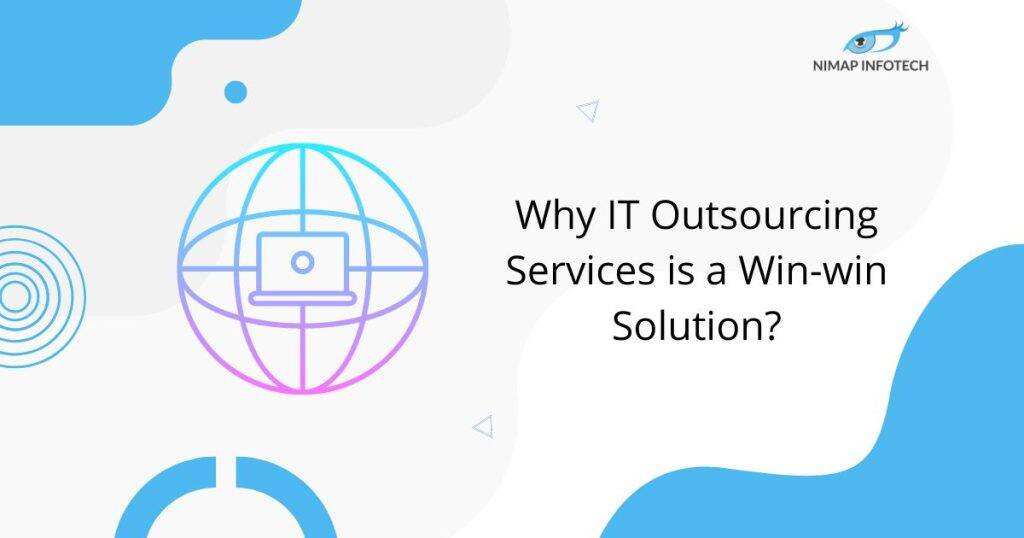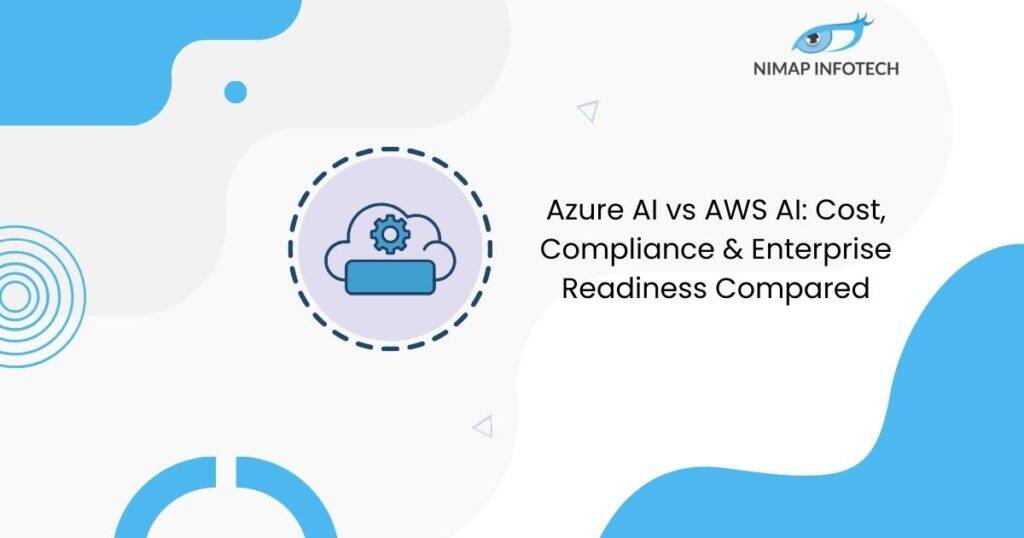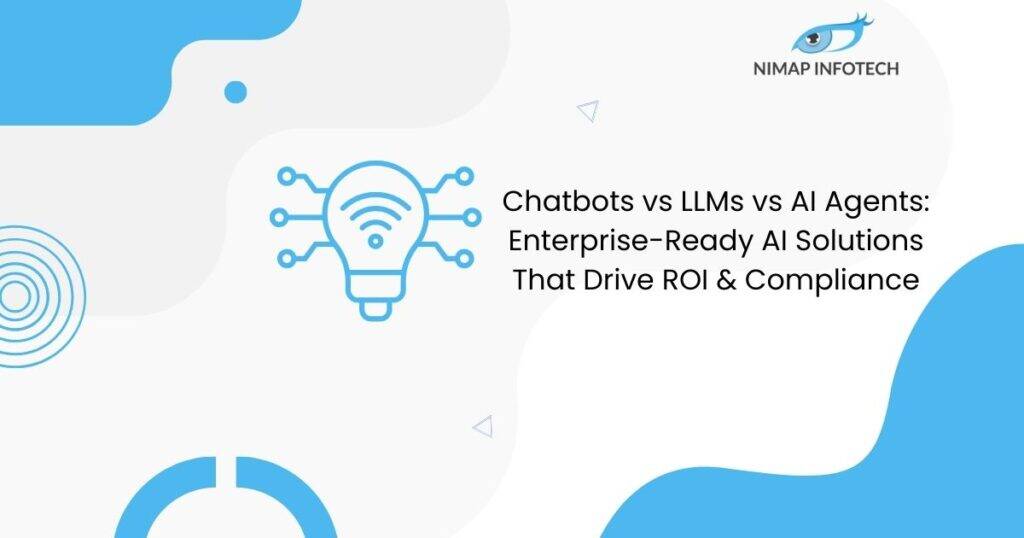Artificial intelligence (AI) is a transformative and disruptive field of computer science with the potential to revolutionize healthcare and improve patient care. Artificial intelligence in healthcare is driving significant advancements in the diagnosis, treatment, and management of diseases, enabling more accurate, efficient, and personalized healthcare delivery. This review highlights recent breakthroughs in AI in healthcare, outlines a strategic roadmap for building reliable and safe AI systems, and explores future directions for AI-augmented healthcare solutions.
Healthcare systems globally face mounting challenges in achieving the ‘quadruple aim’ of healthcare: improving population health, enhancing the patient’s experience of care, improving the caregiver’s experience, and reducing the overall cost of care. The increasing burden of chronic diseases, aging populations, and rising healthcare costs is forcing governments, healthcare providers, payers, and regulators to explore innovative models for healthcare delivery.
The role of artificial intelligence in healthcare is becoming critical in addressing these challenges by providing data-driven insights to improve clinical decision-making, automate workflows, and optimize resource allocation.
What is Artificial Intelligence?
Artificial intelligence (AI) refers to a set of technologies that enable computers and machines to simulate human learning, comprehension, problem-solving, decision-making, creativity, and autonomy. AI empowers computers to perform complex tasks such as understanding and translating spoken and written language, analyzing data, recognizing patterns, and making recommendations.
AI is becoming the backbone of innovation in modern healthcare, enhancing operational efficiency and clinical accuracy. The role of artificial intelligence in healthcare extends to automating administrative tasks, analyzing medical images, predicting disease outbreaks, and personalizing treatment plans based on patient data. By improving diagnostic accuracy and optimizing resource allocation, AI helps reduce the overall cost of care while improving patient outcomes.
To support the growing integration of AI in medical practice, there is an increasing demand for AI in healthcare courses that educate healthcare professionals on the latest AI technologies, ethical considerations, and best practices. These courses aim to equip medical professionals with the knowledge and skills needed to implement and manage AI-driven healthcare systems effectively.
The application of artificial intelligence in healthcare is transforming the healthcare landscape by enabling data-driven decision-making, improving patient care, and streamlining clinical workflows. As AI continues to evolve, its impact on healthcare will expand, offering new opportunities to enhance patient outcomes, reduce costs, and improve the overall quality of care.
How Can Artificial Intelligence Benefit Healthcare?
Artificial Intelligence (AI) is transforming the healthcare industry by improving patient care, streamlining operations, and enhancing diagnostic accuracy. AI in healthcare is being used to analyze large volumes of medical data, identify patterns, and provide predictive insights that help healthcare professionals make better decisions. From automated health monitoring to personalized treatment plans, artificial intelligence in healthcare is driving innovation and improving patient outcomes. AI also plays a key role in drug discovery, medical imaging, and virtual health assistants, making healthcare more efficient and accessible. If you’re looking to hire an AI developer for healthcare, our experts can help you build next-gen AI solutions that boosts efficiency and patient care.
1. Connecting Disparate Healthcare Data
AI can integrate and analyze data from various sources such as electronic health records (EHR), medical imaging, and patient history. This allows healthcare providers to gain a comprehensive view of a patient’s health, improving decision-making and personalized care.
2. Enhancing Health Monitoring and Preventive Care
AI-powered health monitoring systems can track patient vitals in real time, identify anomalies, and provide early warnings for potential health issues. This helps in improving preventive care and reducing emergencies.
3. Increasing Efficiency in Healthcare Diagnoses
AI applications in healthcare, such as machine learning algorithms, can analyze complex medical data and provide accurate diagnoses faster than traditional methods. AI-driven diagnostic tools are helping radiologists and pathologists detect diseases like cancer at an early stage.
4. Improving Healthcare User Experience
AI chatbots, virtual health assistants, and automated patient scheduling systems can streamline the patient experience. AI helps provide faster responses to patient inquiries and reduces wait times, enhancing overall satisfaction.
5. Streamlining Healthcare Operations
AI can optimize hospital resource management, patient flow, and staff scheduling. Predictive analytics help healthcare providers anticipate demand and allocate resources more effectively, improving operational efficiency.
6. AI Governance in Healthcare
AI governance ensures that AI systems in healthcare are ethical, transparent, and secure. Establishing guidelines for data privacy, algorithm bias, and decision-making accountability is crucial for maintaining trust in AI-based healthcare solutions.
7. Future and Potential of AI in the Healthcare Ecosystem
The future of AI in healthcare lies in custom AI-driven solutions for drug discovery, precision medicine, and robotic surgery. By leveraging custom AI healthcare solutions, medical treatments will become more personalized, patient outcomes will improve, and overall healthcare costs will be significantly reduced.
8. AI in Healthcare Courses
Healthcare organizations are investing in AI training programs to upskill professionals. AI in healthcare courses cover machine learning, natural language processing (NLP), and data analysis to empower healthcare professionals to integrate AI effectively.
9. Application of Artificial Intelligence in Healthcare
AI applications in healthcare, such as automated medical imaging, predictive analytics, drug discovery, virtual nursing assistants, and personalized treatment plans, are enhancing medical decision-making accuracy and reducing human error.
AI in Healthcare: Current Applications & Future Possibilities
Current Use Cases of AI in Healthcare (Near Term)
- Today, artificial intelligence (AI) in healthcare primarily functions as a pattern recognition and automation tool rather than a reasoning engine.
- AI systems are increasingly used to automate repetitive, high-volume tasks, improving efficiency and reducing the burden on healthcare professionals.
- The current application of AI in healthcare focuses on streamlining clinical workflows, improving diagnostic accuracy, and reducing human error.
- AI is currently being applied in precision diagnostics such as:
- Detecting diabetic retinopathy through medical imaging.
- Enhancing radiotherapy planning for improved accuracy and patient outcomes.
Future Use Cases of AI in Healthcare (Medium Term: Next 5–10 Years)
- In the medium term, AI systems are expected to become more powerful and efficient, requiring less data for training while handling more complex and unstructured datasets.
- Healthcare organizations will shift from being adopters of AI to becoming co-innovators with technology providers, leading to the development of precision therapeutics tailored to individual patient profiles.
- The role of artificial intelligence in healthcare will expand to include the integration of data from multiple sources, such as:
- Imaging data (X-rays, MRIs).
- Electronic health records (EHR).
- Genomic and pharmacological data (multi-omic data).
- Behavioral health data (mental health patterns).
Long-term Use Cases of AI in Healthcare (>10 Years)
- In the long term, AI will enable the transition to precision medicine — moving from a one-size-fits-all model to a personalized, preventative, and data-driven healthcare system.
- AI systems will become more intelligent, capable of complex reasoning, and able to deliver proactive care by predicting disease patterns and patient risks.
- AI will drive improvements in patient care and clinical outcomes through enhanced disease management models.
- The healthcare delivery system will become more cost-effective, offering better clinical and patient experiences.
AI-enabled Connected and Augmented Care
- AI will reduce inefficiencies in healthcare by improving patient flow and caregiver experience through real-time decision-making and automation.
- In the long term, healthcare systems, hospitals, social care services, patients, and caregivers will be connected through a single, interoperable digital infrastructure powered by passive sensors and ambient intelligence.
- Examples of connected care powered by AI:
- Remote patient monitoring using wearables and sensors to provide timely care and early intervention for patients at risk of deterioration.
- Intelligent telehealth systems using AI-driven insights to improve the accuracy and timeliness of virtual consultations.
By advancing the application of artificial intelligence in healthcare, AI will transform the healthcare industry by improving patient outcomes, enhancing clinical decision-making, and creating a more efficient and responsive healthcare system.
AI-powered Patient Care
AI-powered patient care is transforming the healthcare industry by enhancing the efficiency and quality of medical services. Through artificial intelligence (AI) in healthcare, virtual health assistants and AI-driven applications provide personalized care, automate routine tasks, and support clinical decision-making. From symptom analysis and medication reminders to scheduling appointments and remote monitoring, AI improves patient engagement and reduces the workload on healthcare providers. By offering round-the-clock support and streamlining care delivery, AI is driving a shift toward more accessible, efficient, and patient-centric healthcare.
Transforming Healthcare with AI Virtual Assistants
- With rising healthcare demands and limited resources, AI in healthcare is addressing these challenges through virtual health assistants.
- AI-powered virtual assistants simulate human conversation to provide personalized patient care based on patient input.
Capabilities of AI Virtual Assistants
- Identifying health issues based on symptoms.
- Offering medical advice and medication reminders.
- Scheduling doctor appointments and monitoring vital signs.
- Collecting health data and sharing reports with physicians.
Improving Healthcare Access and Efficiency
- AI virtual assistants reduce the workload on healthcare providers, improving care efficiency.
- Available 24/7, making healthcare more accessible to patients.
- AI-driven triage apps assess symptom urgency, like the NHS chatbot used by 1.2 million people.
Enhancing Patient Engagement
- AI-powered smart speakers benefit elderly and chronically ill patients, improving accessibility.
- Artificial intelligence in healthcare enhances care quality, lowers costs, and increases patient satisfaction.
AI Assistance in Population Health Management
Enhancing Population Health Management with AI
- Healthcare organizations are increasingly using artificial intelligence (AI) to improve patient care and reduce operational costs.
- AI serves as a powerful predictive tool, helping healthcare providers identify at-risk and emerging-risk populations.
- By targeting the patient populations that would most benefit from hands-on intervention, AI helps optimize the use of limited clinical resources and improve patient outcomes.
AI-Driven Methodology for Population Health Management
- A successful tech company has developed a specialized methodology for leveraging AI in healthcare to improve population health management.
- AI models are integrated into existing healthcare workflows to enable precise identification and management of high-risk populations.
- The application of artificial intelligence in healthcare supports early intervention, helping healthcare providers to address health issues before they escalate.
Existing AI Models for High-Cost Health Conditions
- These AI models enable healthcare organizations to design targeted treatment plans and resource allocation strategies.
- AI models have shown high accuracy in predicting risk for some of the most significant healthcare cost drivers, including:
- Opioid use – AI predicts the likelihood of opioid dependency and enables early interventions.
- Diabetes – AI assists in identifying patients at risk of developing diabetes, allowing preventive care strategies.
Development and Integration of AI Models
- AI models are developed, tested, iterated, and seamlessly integrated into population health management workflows.
- Machine learning (ML) techniques enhance AI models over time by learning from real-world data and improving predictive accuracy.
- The continuous feedback loop allows AI systems to refine predictions and adapt to changing patient health patterns.
Future Potential of AI in Population Health Management
- The role of artificial intelligence in healthcare extends beyond opioid use and diabetes to other chronic conditions.
- The predictive capability of AI will enable healthcare systems to shift from reactive care to proactive, preventative care, enhancing patient outcomes and reducing healthcare costs.
- AI models can be adapted to predict and manage health risks for conditions such as:
- Cardiovascular diseases
- Respiratory conditions
- Mental health disorders
By leveraging AI in healthcare for population health management, healthcare organizations can improve clinical decision-making, allocate resources more effectively, and provide personalized patient care at scale.
Challenges & Risks
We recognize that there are significant challenges associated with the broader adoption and implementation of AI in healthcare. These challenges include, but are not limited to, data quality and accessibility, technical infrastructure limitations, organizational capacity, and the need for ethical and responsible AI practices. Additionally, safety and regulatory compliance remain critical concerns. While some of these issues have been addressed, others extend beyond the scope of this article. Understanding the benefits and challenges of AI in healthcare is essential for ensuring its effective and responsible integration into healthcare systems.
Partnering with a trusted Artificial Intelligence Services Company for Healthcare Systems can help navigate these challenges and implement AI solutions that prioritize security, compliance, and efficiency.
How to Build Effective and Trusted AI-Augmented Healthcare Systems?
1. Design and Development
- Identify the right problem to solve, ensuring that the AI solution addresses a genuine clinical need.
- Engage with stakeholders (healthcare providers, patients, administrators) early to gather insights and ensure alignment with real-world challenges.
- Understand the context by analyzing end-user needs and clinical workflows to integrate AI solutions seamlessly into existing healthcare practices.
- Consider the ethical implications of AI deployment, ensuring fairness, transparency, and patient privacy.
2. Experimentation, Evaluation, and Validation
- Establish statistical validity by testing the AI model on diverse datasets to confirm accuracy and generalizability.
- Identify potential failure modes and ensure that the AI system can handle unexpected inputs and edge cases.
- Assess clinical utility by measuring the system’s impact on patient outcomes, decision-making accuracy, and workflow efficiency.
- Evaluate economic utility to determine whether the AI system reduces costs and improves resource allocation.
3. Implementation and Scaling
- Choose the right development modality to ensure scalability and ease of integration into healthcare systems.
- Obtain necessary regulatory approvals to ensure compliance with healthcare standards and legal requirements.
- Plan for model updates to keep the AI system current with evolving clinical guidelines and data.
- Secure appropriate reimbursement and payment models to support long-term viability and adoption.
4. Monitoring and Maintenance
- Establish a system for post-market surveillance to monitor AI performance in real-world settings.
- Implement ongoing safety monitoring to detect and address potential risks to patient safety.
- Measure prospective performance to ensure that the AI system continues to meet clinical and operational expectations over time.
By following this structured approach, healthcare organizations can build effective and trusted AI-augmented systems that enhance clinical decision-making, improve patient care, and optimize healthcare delivery. Partnering with a leading Healthcare Web Development Company like Nimap can help you implement AI-driven solutions tailored to your healthcare needs.
Future Directions and Considerations for Clinical Implementation
The future of AI in healthcare holds immense potential to transform clinical practice, but several challenges must be addressed:
Data Quality and Privacy –
- Ensuring high-quality medical data and securing patient privacy are essential for accurate AI outcomes.
Clinical Metrics and Methodology –
- Defining relevant clinical metrics and selecting proper methodologies are critical for effective AI application.
Human Bias and Hallucination –
- AI-generated insights could be biased or fabricated, highlighting the need for human oversight and evidence-based validation.
Education and Training –
- Incorporating artificial intelligence (AI) in healthcare into medical curricula and continuous professional training will improve understanding and application.
Collaboration and Best Practices –
- Effective AI adoption requires multidisciplinary cooperation between computer scientists and healthcare providers to develop practical, ethical, and sustainable solutions.
Addressing these challenges through innovative data methods, robust AI models, and comprehensive training will drive successful Gen AI integration into clinical practice.
Conclusion
The application of artificial intelligence in healthcare holds immense potential to transform patient care, enhance diagnostic accuracy, and improve operational efficiency. The role of artificial intelligence in healthcare extends from predictive analytics and personalized treatment to real-time decision-making and population health management. However, addressing challenges such as data quality, privacy, bias, and regulatory compliance is essential for responsible AI integration. Through continued research, innovation, and collaboration among healthcare providers, AI researchers, and policymakers, artificial intelligence in healthcare can drive significant improvements in patient outcomes and overall healthcare delivery.
Leveraging AI Consulting Services for the Healthcare Industry can help organizations design and implement AI-driven solutions that enhance efficiency, ensure compliance, and improve patient-centric care.
Nimap Infotech, a trusted technology partner, specializes in building cutting-edge AI-powered healthcare solutions customized for every industry need, ensuring seamless integration and optimal performance.
FAQs
AI in healthcare refers to the use of artificial intelligence technologies, such as machine learning and natural language processing, to analyze data, automate processes, and improve patient care.
AI is used for predictive analytics, medical imaging, drug discovery, virtual health assistants, and personalized treatment plans, improving diagnostic accuracy, operational efficiency, and patient outcomes.
Pros: Improved accuracy, faster diagnoses, personalized care, and operational efficiency.
Cons: Data privacy concerns, bias, high implementation costs, and lack of human empathy.
The application of AI in healthcare includes medical diagnosis, drug discovery, virtual health assistants, robotic surgery, and population health management. For example, AI-driven chatbots help patients with symptom assessment, while machine learning models detect diseases like cancer at an early stage.
Yes, Nimap Infotech provides seamless AI integration services, ensuring secure, scalable, and regulatory-compliant AI implementation in existing Electronic Health Records (EHR) and telemedicine platforms.
Author
-

With 14+ years in IT and entrepreneurship, I co-founded Nimap Infotech, a digital transformation company that has delivered 1200+ projects and built a team of 400+ engineers. I’ve also led mobile development teams at Accenture India and IBM Apple Garage and developed a network of 7k+ iOS and Android developers. As an Angel Investor, tech advisor, and mentor, I actively engage with the startup ecosystem.
View all posts







